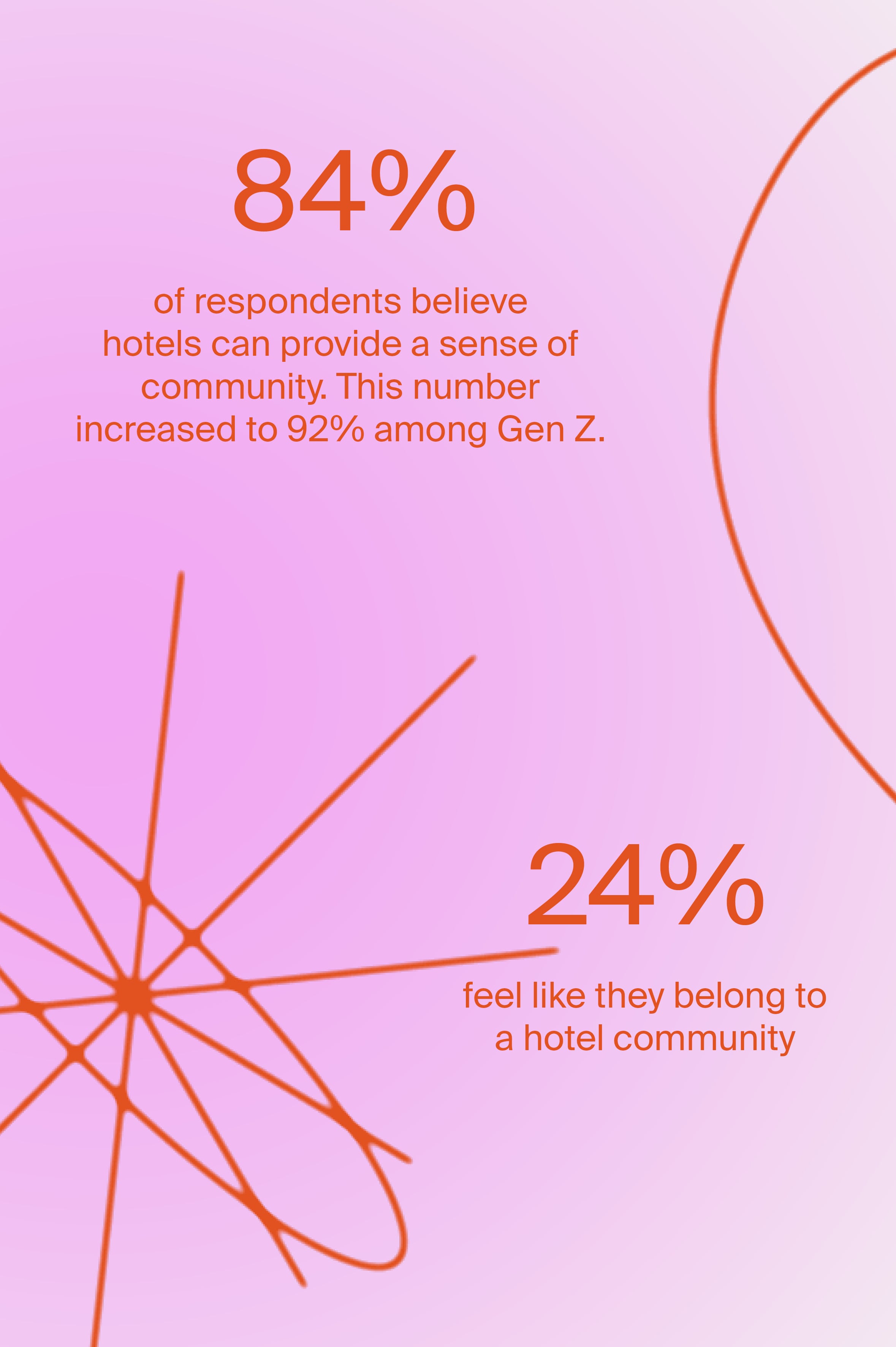Design Hotels Releases Further Forecast Trend Report, Seeing Demand for Community Drive the Future of Travel
Design Hotels Continues to Grow Globally in Lockstep with Emerging Trends

Design Hotels, the community-driven portfolio of nearly 300 independent hotels, today announced its second annual Further Forecast trend report, which explores travelers’ growing desire to build deeper connections, and how this is shaping their expectations of experiences—and in turn, the future of travel.
At Design Hotels, our goal is to inspire new movements in travel. Our recent community survey saw 84% of people believe hotels have the potential to provide a sense of community, yet only 24% feel like they belong to one—that is a huge opportunity for us to meet our global travelers where they are. In the Further Forecast 2024, we explored how to design purpose-led spaces that impact our behavior, enhance our well-being, and improve society at large. Now, with the Further Forecast 2025—Community Capital, we’re considering the next step: how to activate these spaces to bring more value to our lives, our hotelier community, and our global guests.Sarah Doyle, Global Brand Leader & Deputy Managing Director, Design Hotels
Over 50 pages of key findings, actionable insights, and case studies, the Further Forecast 2025 defines three microtrends shaping the idea of Community Capital—the real value created by quality relationships and social ties: communities built around shared interests with niche appeal; new knowledge hubs that bring people together around education and upskilling; and an understanding that community can increase our longevity.
Overall, the study found that the next generation is increasingly driven by a desire for deeper connection. More than traveling for leisure only, people are seeking experiences that offer personal growth and a sense of belonging. 69% of Gen Z respondents said they were more likely to book a hotel if it offered opportunities to meet new people, versus 56% of millennials, according to the same survey last year.
This move toward community-centric travel signals a broader trend: travelers are redefining value, seeing their journeys not as escapes from life but as opportunities to deepen connections, engage in self-cultivation, and live longer, more intentional lives. Highlights from the trend report that underscore this trend, include:
New ways of building and experiencing communities are reshaping the travel ecosystem, and digital platforms developed to cultivate such communities online are rolling over into offline spaces.
- 74% of respondents believe that travel experiences focused on a shared passion or like-minded community deepen their sense of connection and purpose.
- More than half of Millennial and Gen Z respondents said that offline communities (e.g. book clubs, membership clubs) give them the greatest sense of belonging.
Immersive dining experiences and supper clubs are two examples of this emerging offline trend. For instance, Dexamenes Seaside Hotel, a member of Design Hotels in Kourouta, Greece, launched a dining event series and creative exchange with scientists, artists, and thinkers to reflect on the relationship between food sovereignty and cultural heritage.
Elsewhere, Hotelito at MUSA, a member of Design Hotels in Guerrero, Mexico, hosts an annual adults-only Summer Camp inspired by the analog, community-driven atmosphere of true summer camp, where activities reign and exploration is encouraged. Guests are invited to bring their own passions and interests with them and co-create activations in real time—from live music sessions and games to organic gardening workshops and surfing outings.
Knowledge is increasingly valued as a form of social and cultural capital, and travelers are in search of personal growth and knowledge building within communities where insights, philosophies, and experiences are exchanged.
- 79% of respondents are willing to travel somewhere specifically to learn a new skill.
- 1 in 4 Millennial and Gen Z respondents are embracing local tours and creative workshops (ie. writing, painting and ceramics) while staying at a hotel; more than half of the same respondents said they are more likely to book a hotel if it offers career, intellectual, or self-development opportunities.
Cervo Mountain Resort in Zermatt, Switzerland, for example, recently hosted its annual retreat, “A Love Beyond,” where guests discover ideas from expert speakers and learn new skills in workshops. The hotel has seen interest and bookings grow year on year around this event and similar experiences.
Connectedness has become a pillar of living longer and deeper. Longevity is no longer just about extending one’s years on earth; it’s about living meaningfully, in the company of those who make life worth the journey.
- 82% of respondents consider hotels to be spaces where they can improve their long-term health and wellbeing.
- An overwhelming 90% of Millennial and Gen Z respondents believe that social interaction during travel contributes to your personal well-being.
Looking to 2025, Giardino Mountain, a member of Design Hotels in St Moritz, Switzerland, will host a six-day longevity retreat featuring experts in biohacking and metabolic medicine.
Written for hoteliers, designers, architects, and cultural tastemakers, the Further Forecast features actionable insights to help hoteliers build, renew, enliven, or reimagine their spaces and programming to cultivate community. In the wider context of the travel industry, there are also forecasts on what will happen in one-, five-, and ten-years’ time.
A complimentary download of the Further Forecast 2025—Community Capital is available at designhotels.com/further.
https://www.designhotels.com/further/furtherforecast2025/


